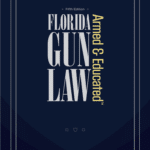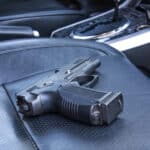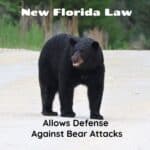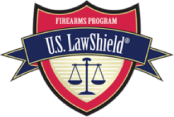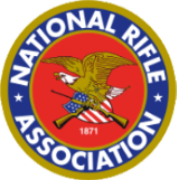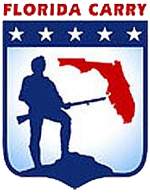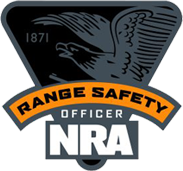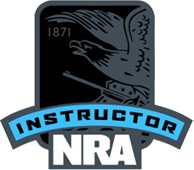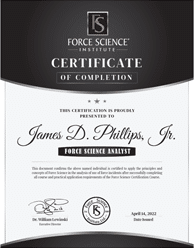
- November 30, 2018
- |
- Carry Laws,Florida Carry Laws FAQ,Gun Laws,Gun Ownership FAQ,Popular,Travel,Visiting Florida
Traveling to Florida With Your Firearm
If you will be traveling to the State of Florida and plan on bringing your firearm with you. Below is important information you need to know. This post was updated and is accurate as of June 29, 2022.
RECOGNIZED LICENSES AND PERMITS
Florida recognizes concealed carry licenses and permits from the following states: Alabama, Alaska, Arizona, Arkansas, Colorado, Delaware, Georgia, Idaho, Indiana, Iowa, Kansas, Kentucky, Louisiana, Michigan, Maine, Mississippi, Missouri, Montana, Nebraska, Nevada, New Hampshire, New Mexico, North Carolina, North Dakota, Ohio, Oklahoma, Pennsylvania, South Carolina, South Dakota, Tennessee, Texas, Utah, Virginia, West Virginia, Wisconsin and Wyoming. However, you must be a resident of the state that issued your permit for it to be recognized and be at least 21 years old. Florida does not recognize out-of-state permits held by Florida residents. For further restrictions, please visit the Florida Department of Agriculture’s website.
WEAPONS COVERED
Florida will recognize your permit/license not only for handguns but also knives, stun guns, chemical sprays such as mace or pepper spray, and billies. FL Stat. §790.06(1)
VEHICLE CARRY
Florida will allow anyone who is eligible to own a firearm, to carry a loaded handgun in their vehicle, regardless of whether they have a license. The handgun must remain concealed, may be loaded, and if you do not have a concealed carry license must be securely encased or not readily accessible while in the vehicle. FL Stat. §790.25(5)
LOCAL GOVERNMENT REGULATION
The state of Florida has preempted local governments from making firearm laws. This means that the law is uniform throughout the state, except for school property. Local School Boards can determine whether firearms may be carried in vehicles in the parking lots of schools, however, since this information is difficult to find, it is better to avoid carrying on any school property. FL Stat. §790.33
OPEN CARRY
Open carry is not allowed in Florida unless you are camping, fishing, or lawfully hunting or traveling directly to or from these activities and in a very few other limited circumstances. While engaged in one of these activities no carry permit is required as long as you may lawfully possess a firearm.
LICENSE CARRY/DUTY TO NOTIFY LAW ENFORCEMENT
An out-of-state permit holder (and an in state one too) must have their permit on them at any time that they are carrying a concealed weapon and must reveal themselves as a concealed weapons license holder to the police only upon request. FL Stat. §790.06
PROHIBITED PLACES – BARS, RESTAURANTS, SCHOOLS
In the state of Florida, prohibit places include: school or professional sporting events, the property of any school or school bus stop, college campuses, career centers, hospitals that provide mental health services, or on any property where you have notice that you are not welcome to carry a firearm. Florida law does not state whether the posting of a sign is proper notice. We advise that if you see a sign that in any way seems to indicate that guns are not welcome, you take your business elsewhere, instead of becoming the test case. You can carry a firearm in the restaurant portion of a combined restaurant/bar establishment, but may not go into the bar area. FL Stat. §790.06(12)(a)
CONSUMING ALCOHOL AND CARRYING YOUR FIREARM
Although we do not recommend mixing firearms and alcohol, it is perfectly legal in the state of Florida to consume alcohol while carrying your firearm (although you may not go to a bar). In fact, most people are surprised to learn that you can be heavily intoxicated and carrying your firearms without breaking any law in Florida (NOT recommended). What you cannot do is be impaired and have your firearm readily accessible for immediate discharge. This has been defined to mean, loaded and in your hand. FL Stat. §790.151
STATE/NATIONAL PARKS
In general, you can carry a concealed weapon in state parks and national parks within the state of Florida if you have a recognized concealed weapons license. The exception to this is the Savannas Preserve State Park per FL Stat. §258.157(2). Additionally, none of the theme parks in Florida allow you to carry a firearm on their property. However, storing your weapon securely encased and concealed in your vehicle is allowed. FL Stat. §790.025, FL Stat. §258.157(2)
Federal law allows possession of firearms in national parks and wildlife refuges so long as the person is not otherwise prohibited by law from possessing the firearm and the possession is in compliance with the law of the state in which the national park or wildlife refuge is located. However, you cannot bring the firearm into any federal buildings which include ranger stations, museums, exhibits, and restrooms. 16 U.S.C. § 1a-7b (2012); 54 U.S.C. § 104906 (2012); 18 U.S.C. § 930 (2006)
VISITING FRIENDS/PRIVATE HOMES
Carrying a concealed weapon at a friend or relative’s home is allowed under Florida law, if you have a concealed weapons license/permit. However, just like any other private property owner, your friend can prohibit the presence of firearms on their property. If you know that you are not welcome on the property with a firearm, you are committing a trespass (a misdemeanor) or an armed trespass (a felony) by being there with your firearm.
POTENTIAL CARRY CRIMES
To follow is a list of firearms and weapons related charges and potential penalties that you can face if you carry a firearm without a recognized carry license/permit in Florida:
- Unlicensed Carry of a concealed weapon – covers all non-firearm weapons. It is a first-degree misdemeanor punishable by up to 1 year in jail and up to $1,000
- Unlicensed Carry of a Concealed Firearm – It is a third-degree felony punishable by up to 5 years in prison and up to a $5,000 fine.
- Open Carrying of a Weapon (includes firearms) – it is a second-degree misdemeanor punishable by up to 60 days in jail and up to a $500 fine. (regardless of whether you have a recognized license to conceal carry).
- Carrying into a prohibited place – knowingly and willfully carrying in:
- A place of Nuisance
- Police, sheriff or highway patrol station
- Detention facility, prison or jail
- Courthouse or courtroom
- Polling place
- Meeting of governing body including school board, municipality, legislature or committee, etc.
- School, college or professional athletic event unrelated to firearms;
- Any elementary or secondary school facility or administrative building;
- Any career center;
- Any portion of an establishment licensed to dispense alcoholic beverages for consumption on premises, which portion of the establishment is primarily devoted to such purpose;
- College or university facilities
- Sterile/secure area of airport
- Any place where prohibited by Federal Law
This is a second-degree misdemeanor punishable by up to 60 days in jail and up to a $500 fine.
One final note: We frequently are asked about transferring through sale or gift a firearm to a person living in a different state. It is a violation of FEDERAL LAW to give, sell, or trade any firearm to a non-resident, unless done through a Federal Firearms Licensee (FFL). This includes a gift to a child or parent. Both the giver and the receiver of the firearm can be convicted. This is punishable by up to 5 years imprisonment in a Federal Penitentiary and up to a $5,000 fine. 18 U.S.C. § 922(a)(5) (2005)
Get in touch

"*" indicates required fields
Copyright © 2022-2025 The Firearm Firm All rights reserved.

